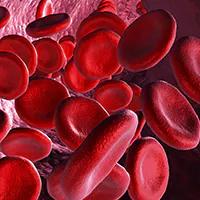
Dr Venugopal on Challenges With the Diagnosis of BPDCN

Sangeetha Venugopal, MD, MS, discusses the importance of increasing awareness of blastic plasmacytoid dendritic cell neoplasm to improve early diagnosis and treatment for patients with BPDCN at academic centers.
Sangeetha Venugopal, MD, MS, assistant professor, Department of Medicine, Division of Hematology, Miller School of Medicine, hematologist/oncologist, Sylvester Comprehensive Cancer Center, University of Miami Health, discusses the importance of increasing awareness of blastic plasmacytoid dendritic cell neoplasm (BPDCN) to improve early diagnosis and treatment for patients with BPDCN at academic centers.
Most patients with BPDCN first present in clinic with skin abnormalities, including lesions and bruise-like discolorations, Venugopal begins. Accordingly, these patients will often visit a dermatologist for initial diagnosis who will then refer them to a hematologist if BPDCN is suspected. Dermatologists are not as well-versed in identifying patients with BPDCN, which often hinders early and accurate diagnosis, Venugopal notes. However, awareness of BPDCN has been increasing in the medical field since the FDA approval of tagraxofusp-erzs (Elzonris) in December 2018, Venugopal reports. As familiarity with this rare hematologic malignancy and its diagnostic markers increases, the identification and subsequent treatment of patients with BPDCN will improve, she says.
Additionally, it is critical that all patients with BPDCN receive treatment at an academic center at all time points, Venugopal emphasizes. BPDCN treatment typically involves the use of combination chemotherapy regimens or targeted therapies. At a minimum, the first cycle of treatment must be administered to patients in an in-patient setting to monitor and manage any adverse effects (AEs), Venugopal states.
Patients with BPDCN are extremely sensitive to CD123-directed therapies and are at an increased risk of experiencing acute renal failure due to massive tumor lysis, Venugopal specifies. Severe tumor lysis syndrome necessitates a quick response from specialists and may require dialysis or extra care that cannot be provided outside of an institutional setting, Venugopal concludes.




































